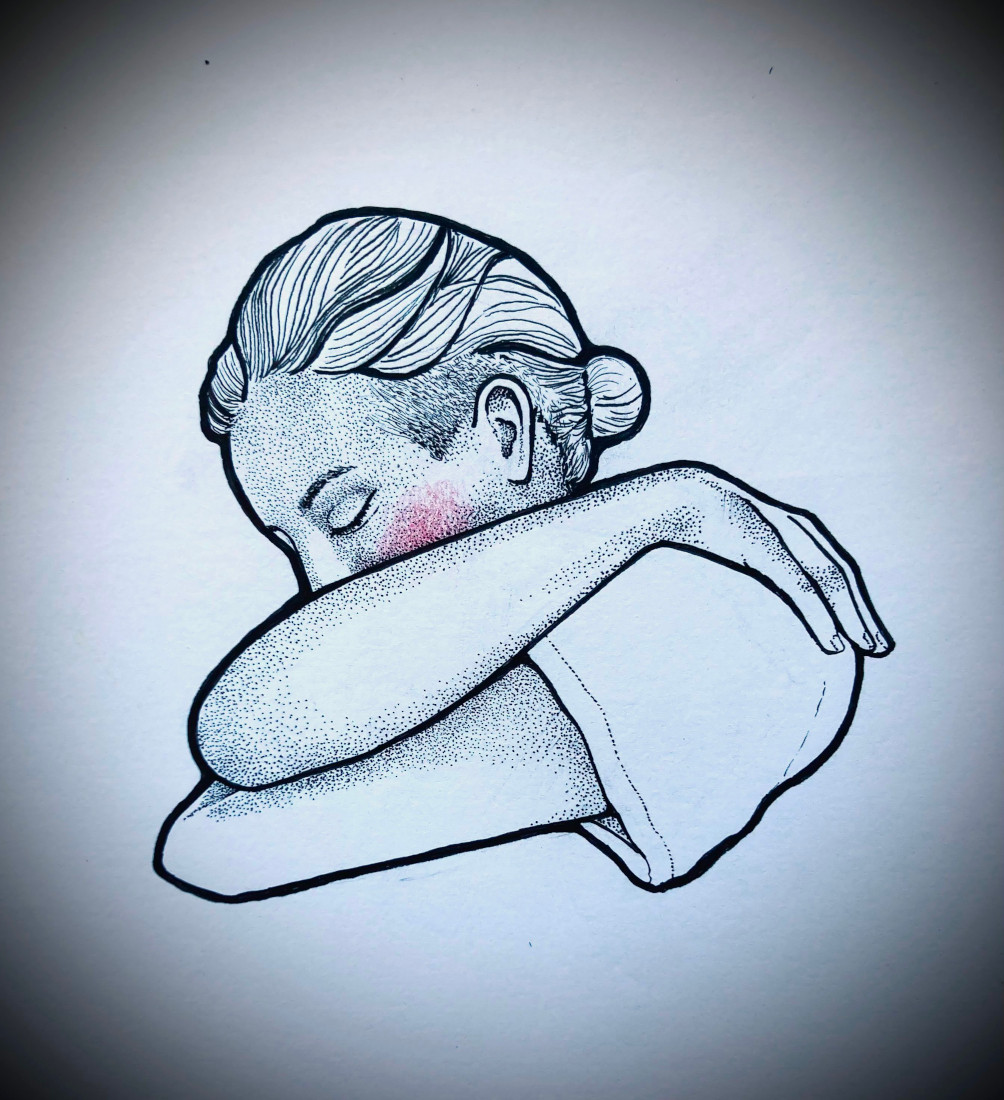Support in seven pages
With my anorexia diagnosis, everything and nothing changed
Illustration by Gabrielle Funk
Even though I’d waited decades to hear them, I can’t recall the exact words the doctor said. An older white man who prodded my abdomen and barely met my eye, he pronounced me anorexic. Even though I’d hardly eaten in days, he offered no treatment options. He removed his gloves and washed his hands of me, then referred me to a hospital counsellor.
I sat, hunched, on the same hospital bed when she caught my gaze and handed over a stack of still-warm printouts. Years later, I picture this counsellor as a mousy Penelope Garcia, conveying digital information to an otherwise stranded, forlorn and overwhelmed agent.
She seemed apologetic for her meagre offering: seven pages from the Women’s Health Clinic and NEDIC, the National Eating Disorder Information Centre. I found them in a pile, nearly undisturbed, while cleaning my apartment last week. In one corner on the last page, her curved handwriting lists the names of mindfulness apps.
This, and her kindness, was all St. Boniface Hospital gave me before discharge. So I left, defeated, discouraged and half-heartedly thumbing through the documents. One sheet from the Women’s Health Clinic informed me of a “wait list for treatment” that was six to 12 months long.
I’ve lived with eating disorders for as long as I can remember. An open secret, they were something concerned teachers and well-meaning family members referenced in hushed conversations, but never by name. As if acknowledgment were enough, the closest people in my life reminded me to eat, purchased foods I enjoyed and never, to my knowledge, sought out formal treatment.
In adulthood, I’ve opened up to doctors and friends. I speak about recovery, describe my healing, knowing both are processes and not things I’ll ever fully attain. I wonder if earlier intervention or adding my name to that Women’s Health Clinic waitlist would have changed anything.
This year, I learned anorexia may be responsible for weakening my bones, causing two stress fractures still healing in my feet. I’m still waiting on a confirmatory bone-density test, which will likely happen at St. Boniface Hospital.
This time, I’ll bypass the emergency room and walk their halls armed with an appointment and a diagnosis. I may again leave with only seven pages of greyscale printouts.
Since that first hospital visit, everything and nothing has changed.
Like the well-intentioned teachers who saw me struggling, I check in on my students who barely open their lunches or skip the meal entirely. I can commiserate, treat them to snacks from the cafeteria and listen – but I can’t offer them more than a far-too-short list of resources and the acknowledgment that I’ve been there, am still there, too.
Danielle Doiron is a creative and educator who splits her time between Winnipeg, Philadelphia and small Midwestern towns. Catch them reading, procrastinating or defending the pineapple on pizza.
Published in Volume 76, Number 20 of The Uniter (March 10, 2022)







